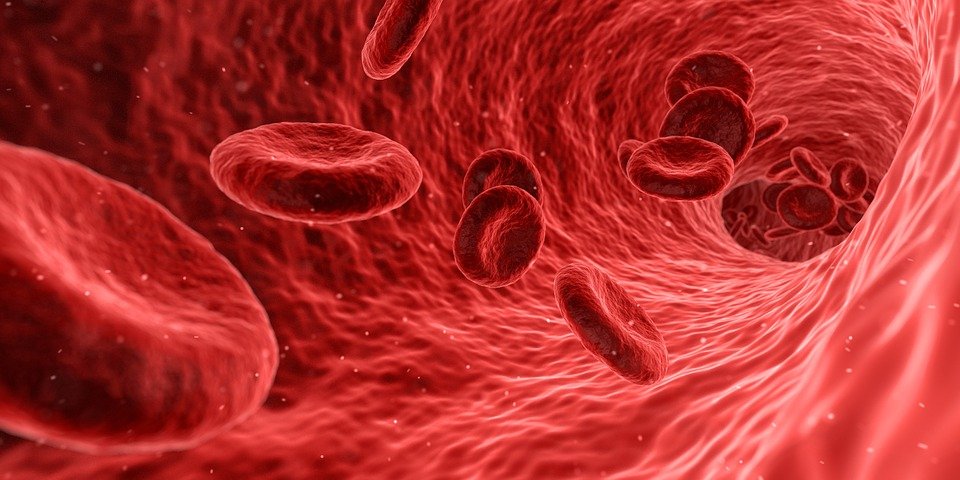
(Image source)
Ok today I happened to notice an advertisement on TV. It's a video where people do different sorts of goofs and then there is a text that goes like:
"There are times when you feel completely useless but you carry something that is really useful. Donate blood and save a life."
#bloodyuseless
I must admit it's a very witty campaign. It perfectly manages to make you think about all these people in need, all those lives we can save just by paying a visit to our nearest hospital and wasting 20 minutes of our valuable time to offer something even more valuable...life!
What's in it?
Blood consists of:
- Red blood cells: Those red disks with a flattened center take up most of your blood's volume (as much as 40-45%). They don't have a nucleus and are shape-shifters (they can adjust their shape to fit every blood vessel in your body). Your kidneys are initially in charge of their production with a protein called erythropoietin. They start forming within the bone marrow and after seven days of maturing they can be finally released in the blood stream where they live for about 2 months. Red cells carry a protein, hemoglobin, that gives them their characteristic red color. Its job is to carry the oxygen from the lungs to the organs and tissues and then get CO2 back to the lungs to get rid of it.
- White blood cells: They are our "bodyguards" and they are not as many as red blood cells (almost 1% of your blood's volume). They are divided into a)neutrophils (the immediate response to "invaders", they live more or less a day), b) T-lymphocytes (that work like "managers" by co-ordinating other immune cells in the fights against threats), and c) B-lymphocytes (the antibody-makers, proteins that are made to fight off specific viruses, bacteria, etc)
- Plasma: A cocktail of water, sugar, fat, protein, and salts. It is a fluid that moves around you body carrying all sorts of useful components like blood cells, antibodies and proteins just to make sure that your body functions properly.
- Platelets: They cannot be considered cells, but fragments of them. Their job is to form clots, therefore they gather near wounds and form a "shield", a fibrin clot, that does not allow more blood to get out. When there are too many platelets in the blood there is a high risk of unwanted clotting (leading to strokes or heart attacks), on the other hand, when ther number is too small, it may lead to extensive bleeding.
Where are all these products made?
The bone marrow makes hematopoietic stem cells. These stem cells have the ability to transform into red, white blood cells and platelets and can be found in your bone marrow or even floating around your body within your blood stream as well as in umbilical cord of a newborn. These are a remarkable category of cells with potentials to cure diseases like leukemia, lymphoma or bone marrow failure.
What does it do?
The blood's main functions are:
- It delivers oxygen and nutrients in our lungs and tissues
- It regulates our body temperature
- It carries the antibodies where they're needed to fight infections
- It carries waste products to the liver and kidneys, where it is filtered and cleaned
- After an injury, it forms clots to minimize blood losses
Who can give blood?
Any healthy adult (up to 70 years old). In case someone:
- has an active infection or any chronic medical condition
- is on medication
- has had a blood transfusion or organ transplant
- has had a tattoo
- is a pregnant woman
then blood donation is out of the question.
Why give my blood away?
Because there are numerous people out there who need it (or some of its components) and unlike organ donation, you get to live after donating blood :P
Here is a useful list with some myths and truths considering blood donation: keelpno.gr
And some tips to keep in mind before giving blood: blood.co.uk
I, myself, have given blood once so far and I am definitely going to donate again. Nothing can describe the feeling you get when you know you're helping someone that really needs it!
References
hematology.org
who.int
blood.co.uk

Thank you for being here and reading this. If you like my writing, you can visit my blog for more ;)
Some of my recent posts:
* Cyclone Dahlia And An Amazing Lightning Show!
* Steemeet #2 - Athens! We Are Waiting To See You There!
* A Taste Of Sweden (Part 5 - Uppsala University, Department Of Geology)
* Trolls In Athens - Steemeet #2 Was Great!
* Trolls Around The Solar System (Part 1 - Mercury)
Special thanks and mentions:

Until my next post,
Steem on and keep smiling, people!


